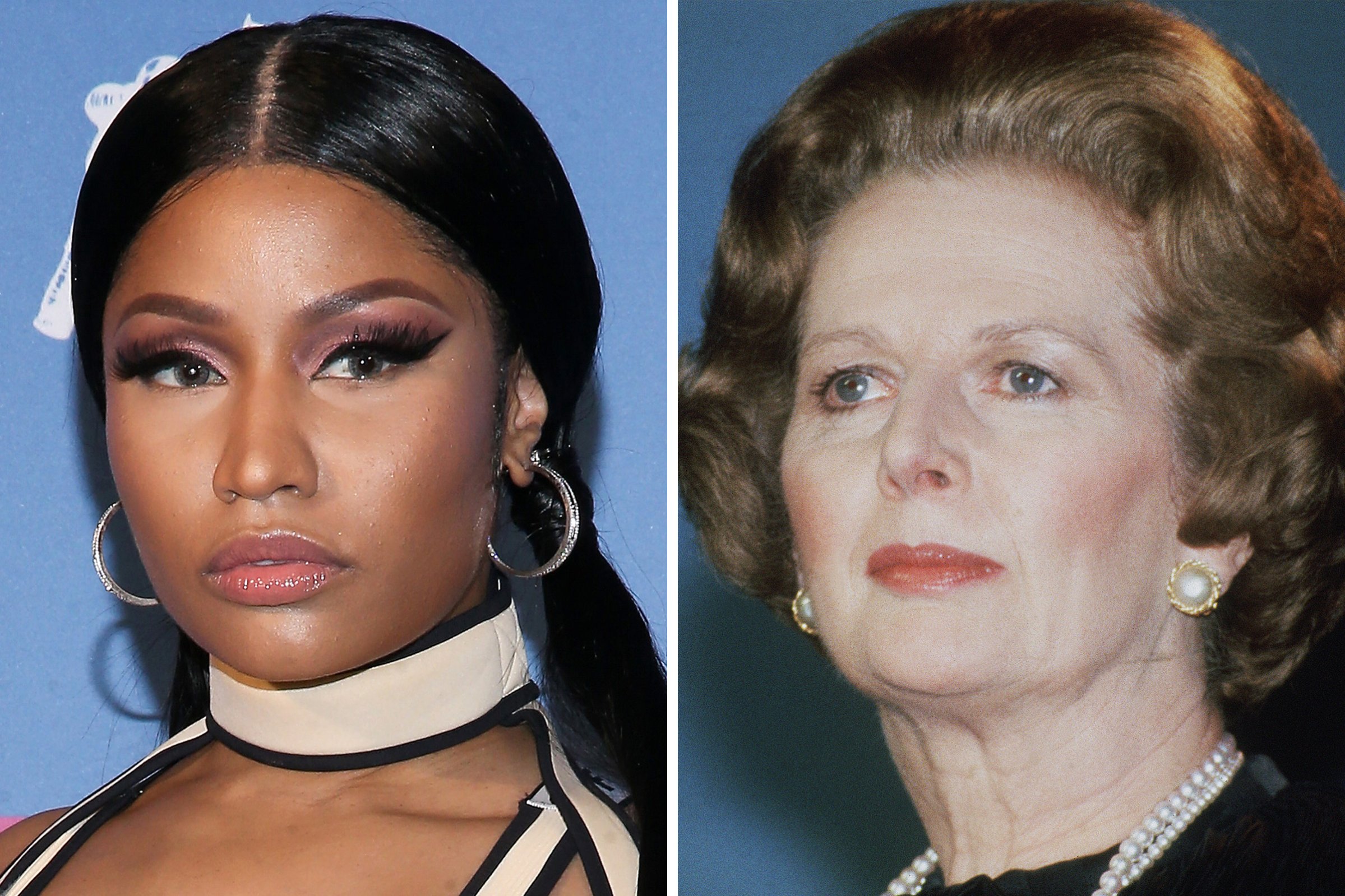
Nicki Minaj caused some confusion on social media Thursday night when she gave a shout out to Margaret Thatcher, the late former British Prime Minister.
“Everyone has to express their truth and I have to ruffle a few feathers along the way, I don’t care,” Minaj said on her new radio show. “Shout out to Margaret Thatcher. Sometimes queens and women of power have to do things that even they aren’t happy about doing, but they know it’s for the betterment of what’s to come and who’s to come.”
Thatcher, often referred to as the “Iron Lady,” was the first female Prime Minister of the United Kingdom, however fans quickly voiced their concerns about Thatcher.
Thatcher was a polarizing prime minister. She governed the U.K. for 11 years beginning in 1979, labelled the party of Nelson Mandela as “terrorists.” In 2006 then-Conservative leader David Cameron apologized for the “mistakes” of Thatcher’s government, including a failure to impose sanctions upon Apartheid South Africa.
Thatcher also implemented the “Section 28” law – which stated that schools in the U.K. should not “promote the acceptability of homosexuality,” which in effect banned the discussion of same-sex relationships between teachers and students. Stonewall, an LGBT+ rights organization, says Section 28 was “an offensive piece of legislation designed to prevent the so-called ‘promotion’ of homosexuality in schools, as well as stigmatising lesbian, gay and bi people.”
But she is perhaps most widely remembered in the U.K. for her comprehensive restructuring of the economy away from manufacturing towards financial services. At the beginning of her governance, 13.4% of Brits lived in a measure of poverty, according to the Institute for Fiscal Studies. At the end, that number had risen to 22.2% – although the incomes of the richest in society had risen significantly.
Thatcher was an ardent believer in the “invisible hand” of the free market, and engaged in a drawn-out battle with striking miners, which she eventually won – refusing to subsidize state-owned mines that were failing to turn a profit. While many British people agree those mines were unsustainable, there is a general consensus that Thatcher’s failure to invest in areas where jobs were lost was the key factor in the widespread poverty in those regions that continues until today. “There’s no such thing as society,” she said in 1987.
Minaj’s remark came not long after she likened herself to Harriet Tubman, a woman who escaped slavery and then helped free hundreds of slaves in the U.S. in the 1800s.
More Must-Reads from TIME
- Where Trump 2.0 Will Differ From 1.0
- How Elon Musk Became a Kingmaker
- The Power—And Limits—of Peer Support
- The 100 Must-Read Books of 2024
- Column: If Optimism Feels Ridiculous Now, Try Hope
- The Future of Climate Action Is Trade Policy
- FX’s Say Nothing Is the Must-Watch Political Thriller of 2024
- Merle Bombardieri Is Helping People Make the Baby Decision
Write to Billy Perrigo at billy.perrigo@time.com